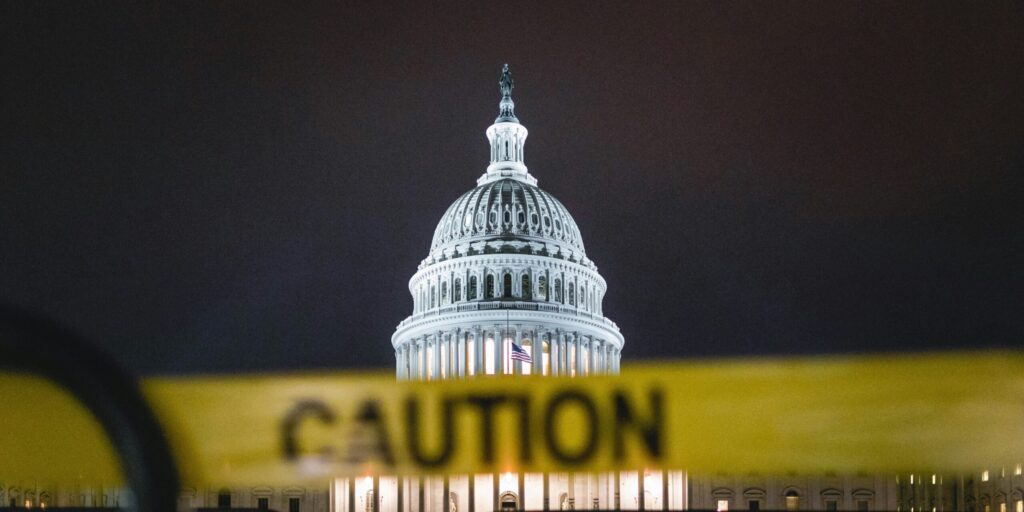The U.S. federal government’s shutdown, which began on October 1, 2025, has started to send shockwaves through the country’s financial markets, with the Securities and Exchange Commission (SEC) forced to operate at minimal capacity. By October 4, the impact on Wall Street had become increasingly clear: the U.S. initial public offering (IPO) pipeline has effectively ground to a halt.
Under the SEC’s contingency plans, more than 90 percent of the agency’s workforce has been furloughed, leaving only a small team in place to handle emergency enforcement actions and essential market surveillance. Most day-to-day operations—including the review of IPO filings, registration statements, and corporate disclosures—have been suspended. As a result, dozens of companies planning to debut on public markets this fall now face indefinite delays, creating uncertainty across the capital markets.
The timing is particularly disruptive. The U.S. IPO market had shown signs of recovery through mid-2025, following two years of subdued activity caused by high interest rates and broader market volatility. Several high-profile companies, including firms in artificial intelligence, renewable energy, and fintech, had been preparing to launch offerings in early October. Those plans are now in limbo, with underwriters, legal teams, and investors unsure when review processes will resume.
Market analysts warn that the shutdown could stall momentum in what was expected to be one of the strongest quarters for new listings since before the pandemic. “This is a regulatory freeze at a critical moment,” said Janet Lin, an equity capital markets strategist at Horizon Partners. “The SEC plays a central role in approving filings and ensuring market integrity. With most staff furloughed, even routine reviews can’t move forward. That uncertainty will ripple through financing plans, valuations, and investor sentiment.”
The SEC’s suspension of routine operations means that companies seeking to go public cannot progress through the final stages of the registration process—a mandatory step for approval before securities can be offered to the public. In practical terms, this means that IPOs awaiting last-minute comments or sign-offs from SEC staff will remain pending, while companies in earlier stages of preparation will be unable to file new paperwork altogether.
For the firms affected, the delays come at a substantial cost. Many emerging companies, particularly those in capital-intensive industries like biotechnology, clean energy, and semiconductor manufacturing, rely on public listings to secure funding for growth and operations. Each week of delay can disrupt financial forecasts, employee compensation plans, and investor roadshows. According to industry estimates, several IPOs collectively valued at over $5 billion in proceeds were scheduled for October and November—now all uncertain.
Investment banks and law firms that advise IPO candidates are also feeling the effects. “We’re advising clients to pause or slow down until the situation becomes clearer,” said David Kessler, managing partner at a major securities law firm in New York. “The SEC’s staff simply isn’t available to respond to questions, and filings can’t advance without formal review. Even if a resolution is reached soon, there will be a backlog that could take weeks to clear.”
The disruption has broader implications for market confidence. The IPO market, often seen as a proxy for investor risk appetite, had been gaining momentum as inflation stabilized and interest rate expectations eased. Several technology firms, buoyed by investor enthusiasm for artificial intelligence and automation, had been preparing large-scale offerings that were expected to test market demand. Now, those launches may be postponed until early 2026, potentially dampening optimism among both issuers and investors.
The shutdown’s impact extends beyond IPOs. Routine SEC functions such as processing corporate disclosures, approving mergers, and overseeing investment funds have also been curtailed. While critical enforcement operations remain active, the reduced staffing limits the agency’s ability to review filings or respond to corporate inquiries in a timely manner. The Financial Industry Regulatory Authority (FINRA) and other self-regulatory organizations continue to operate, but they depend heavily on SEC oversight for guidance and coordination.
For investors, the uncertainty compounds concerns about the broader economic implications of the government shutdown. Market analysts note that while stock indexes have so far remained relatively stable, prolonged political gridlock could erode confidence. “When key regulators are offline, it undermines the perception of stability that underpins capital markets,” said Michael O’Donnell, chief economist at Archer Financial. “Even a short-term delay in IPO approvals sends a signal about the fragility of the system.”
The current shutdown follows a lapse in congressional negotiations over federal spending bills, leaving agencies like the SEC without appropriations to continue full operations. Similar shutdowns in the past have lasted anywhere from a few days to several weeks, with each causing cumulative effects on regulatory timelines. The SEC’s 2018–2019 shutdown, for example, delayed dozens of IPOs and created backlogs that took months to resolve.
As of early October, there is no clear indication of how long the current shutdown will last. Congressional leaders have signaled ongoing negotiations but remain divided on spending priorities. Until a resolution is reached and the SEC resumes normal operations, the IPO market is expected to remain in stasis.
Meanwhile, companies that were on the verge of going public are weighing alternative strategies—some may pursue private funding rounds or delay offerings until early 2026, while others could turn to overseas markets less affected by U.S. regulatory disruptions. However, analysts caution that such moves come with risks, especially given volatile global conditions and investor caution toward untested public offerings.
For now, the U.S. capital markets are in a holding pattern. The SEC’s diminished capacity has not only stalled the IPO pipeline but also highlighted the vulnerability of critical financial infrastructure to political stalemates. As the shutdown enters its second week, both Wall Street and Main Street are watching closely for signs of progress in Washington. The eventual reopening of the SEC will likely bring a flood of delayed filings, investor updates, and renewed deal activity—but the lost time may have lasting effects on the momentum of America’s IPO recovery.


